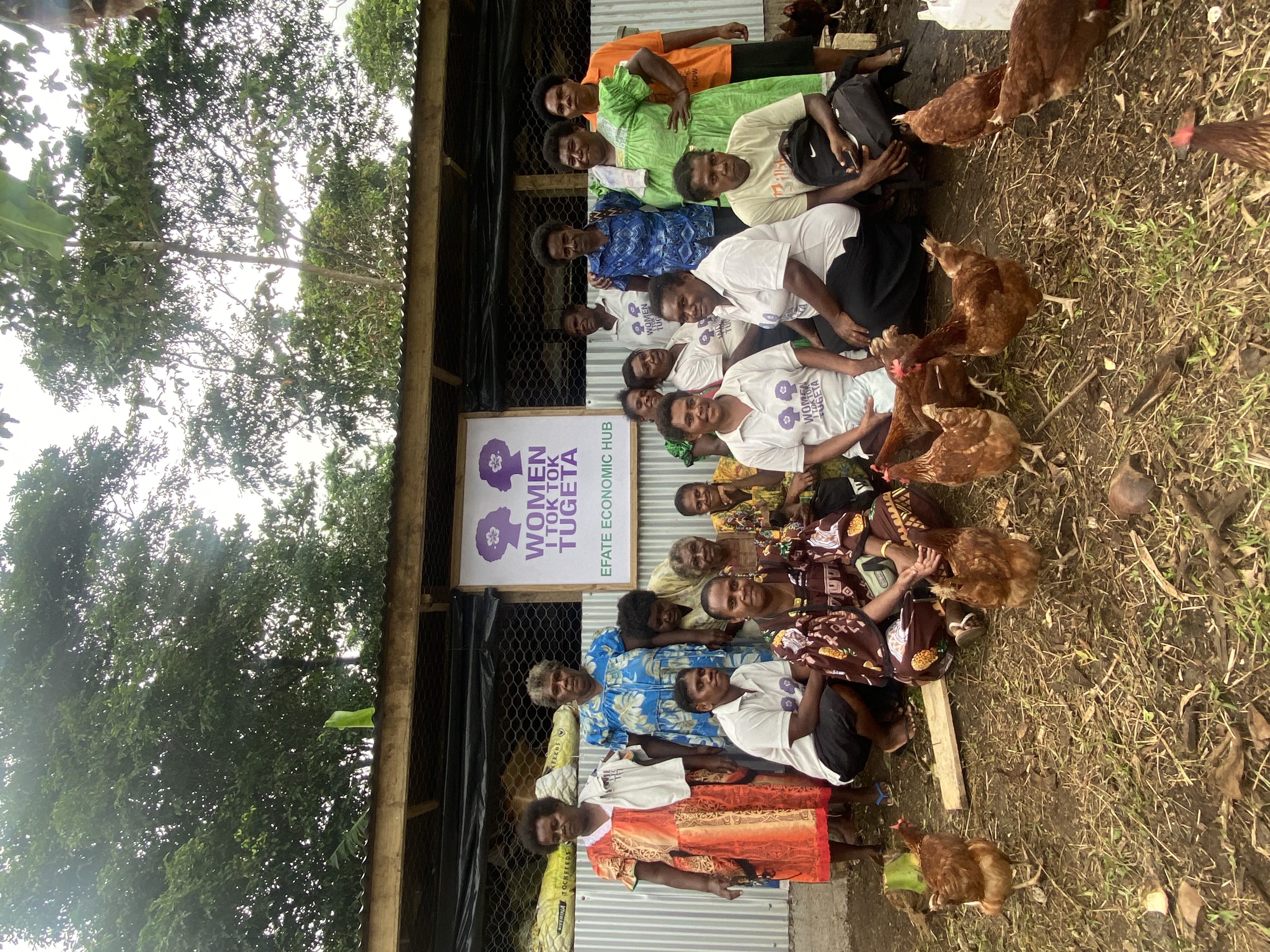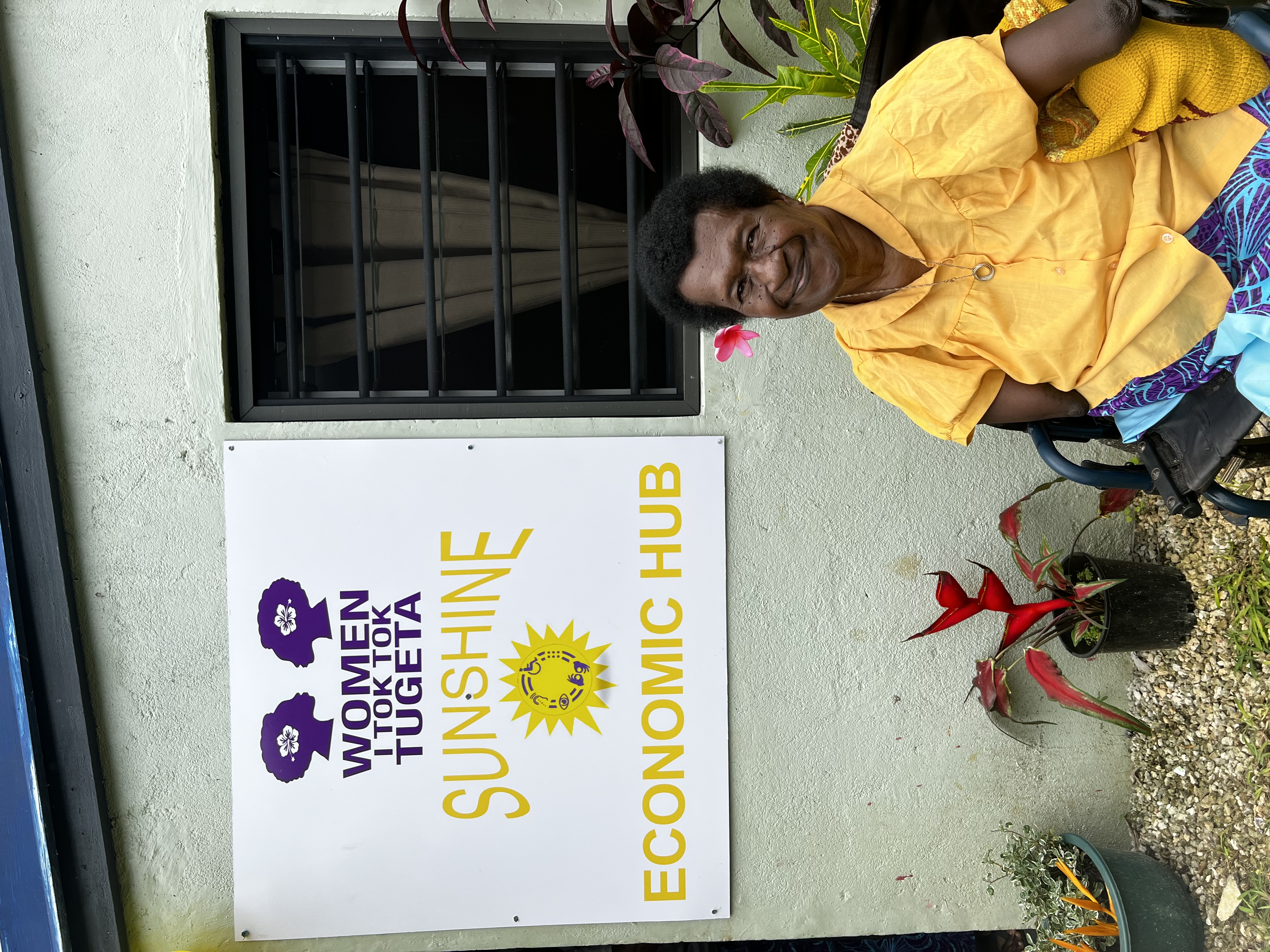Storm-Proofing Lives: Women Build Economic Power Through Innovation in Vanuatu
2024 LOCAL ADAPTATION CHAMPIONS AWARD NOMINEE
In the islands of Vanuatu, climate change poses a severe and persistent threat, with frequent cyclones wreaking havoc on vulnerable communities. The country has endured eight major storms in the last eight years. With 64% of the population living within one kilometer of the coast, communities are highly exposed to storm surges, coastal erosion, and agricultural devastation. Given that 75-80% of Ni-Vanuatu depend on local agriculture for food, the impact of these climate-related disasters is devastating, making climate resilience an urgent priority.
Women-Led Solutions for Resilience
In response to these challenges, ActionAid Vanuatu (AAV) has launched a powerful initiative aimed at empowering women to build resilience. Through the Women ITokTokTugeta – WomenTalkTalkTogether (WITTT) network, AAV has reached 9,000 women across five islands—Efate, Erromango, Tanna, Malo, and Malekula. Central to this initiative are the Women’s Economic Hubs, collective enterprises that allow women, including those with disabilities, to engage in income-generating activities such as vegetable farming and poultry. Launched in 2022, these hubs provide critical economic support and help ensure food security in a region heavily impacted by climate-related disasters.
"Vanuatu's women are on the front lines of climate change, facing frequent and severe storms that disrupt their lives and livelihoods. Our Women’s Economic Hubs are more than just business ventures; they are lifelines that help women secure their futures in the face of these challenges," says Sally Bayjoo, Project Manager at ActionAid Vanuatu.

Opening of Mama's Chicken Farm in Efate
Empowering Women with Climate-Smart Practices
The Women’s Economic Hubs focus on teaching women agroecological practices, empowering them to cultivate crops without relying on harmful chemical fertilizers or pesticides. This not only enhances soil health but also strengthens the resilience of crops against the unpredictable weather patterns increasingly linked to climate change. Additionally, AAV has built cyclone-resistant chicken farms and seed banks to secure food supplies during crises, ensuring that communities have access to food even in the aftermath of severe storms.
The hubs are also designed to foster economic independence. Women organize their gardens into three distinct types: one for their families, one for market sales, and one dedicated to food distribution during emergencies. This system ensures that food security is maintained throughout the community, even when disaster strikes.
Transformative Impact: Building a Resilient Future
The impact of the Women’s Economic Hubs has been remarkable. During the twin cyclones Judy and Kevin in March 2023, the hubs played a vital role in distributing 40 tonnes of food, produced by the women, to 10,000 households across three islands, as well as to local hospitals and evacuation centers. This swift response ensured access to essential resources during a time of extreme crisis.
Beyond immediate disaster relief, the hubs have significantly improved the quality of life for many women and their families. By generating consistent food supplies, such as vegetables and eggs, and providing income opportunities, these ventures have helped reduce household financial stress. This economic stability has contributed to a reduction in gender-based violence, as women gain more control over their livelihoods.
Moreover, the benefits of the Women’s Economic Hubs extend beyond individual families. A portion of the revenue generated by the women is reinvested into community projects, such as creating safe spaces for women and strengthening the WITTT network itself. This reinvestment fosters a culture of collective growth and support, ensuring that the community thrives as a whole.

Scaling Success and Expanding Horizons
The WITTT network has grown rapidly since its inception, expanding from three islands to five, with new branches forming in response to local needs identified during humanitarian interventions. Membership surged from 5,000 to 9,000 women in 2023, reflecting the initiative’s success and the growing interest among Ni-Vanuatu women in building climate resilience.
Looking ahead, the women of Malo Island are exploring new ventures, such as bee farming, which would complement their vegetable farming by improving pollination and offering additional income streams through honey production. This evolution of the Women’s Economic Hubs underscores the adaptability of the program in meeting the changing needs and aspirations of the community.
By providing women with the tools they need to secure their futures and build resilience in the face of climate change, ActionAid Vanuatu and the WITTT network are not just responding to disasters—they are reshaping the landscape of women’s empowerment and climate resilience in Vanuatu.